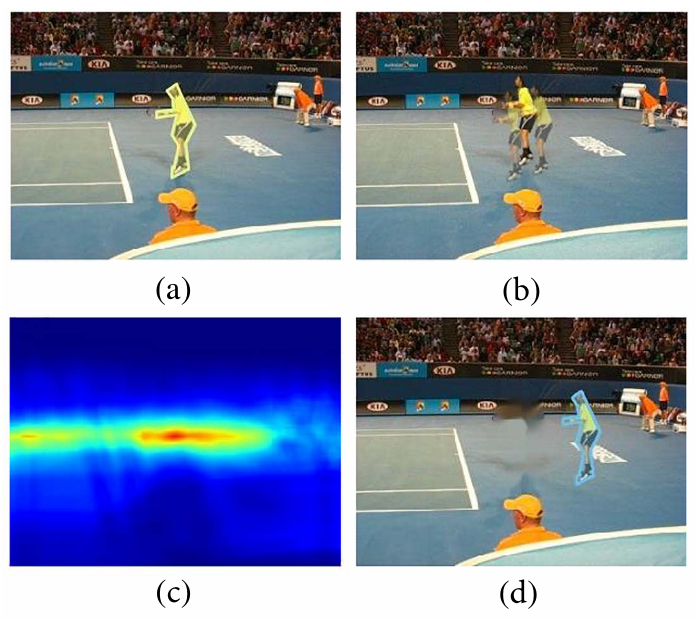Instaboost: Boosting instance segmentation via probability map guided copy-pasting
Instance segmentation requires a large number of training samples to achieve satisfactory performance and benefits from proper data augmentation. To enlarge the training set and increase the diversity, previous methods have investigated using data annotation from other domain (e.g. bbox, point) in a weakly supervised mechanism. In this paper, we present a simple, efficient and effective method to augment the training set using the existing instance mask annotations. Exploiting the pixel redundancy of the background, we are able to improve the performance of Mask R-CNN for 1.7 mAP on COCO dataset and 3.3 mAP on Pascal VOC dataset by simply introducing random jittering to objects. Furthermore, we propose a location probability map based approach to explore the feasible locations that objects can be placed based on local appearance similarity. With the guidance of such map, we boost the performance of R101-Mask R-CNN on instance segmentation from 35.7 mAP to 37.9 mAP without modifying the backbone or network structure. Our method is simple to implement and does not increase the computational complexity. It can be integrated into the training pipeline of any instance segmentation model without affecting the training and inference efficiency.
Configs in this directory is the implementation for ICCV2019 paper "InstaBoost: Boosting Instance Segmentation Via Probability Map Guided Copy-Pasting" and provided by the authors of the paper. InstaBoost is a data augmentation method for object detection and instance segmentation. The paper has been released on arXiv.
You need to install instaboostfast before using it.
pip install instaboostfastThe code and more details can be found here.
InstaBoost have been already integrated in the data pipeline, thus all you need is to add or change InstaBoost configurations after LoadImageFromFile. We have provided examples like this. You can refer to InstaBoostConfig for more details.
- All models were trained on
coco_2017_trainand tested oncoco_2017_valfor convenience of evaluation and comparison. In the paper, the results are obtained fromtest-dev. - To balance accuracy and training time when using InstaBoost, models released in this page are all trained for 48 Epochs. Other training and testing configs strictly follow the original framework.
- For results and models in MMDetection V1.x, please refer to Instaboost.
| Network | Backbone | Lr schd | Mem (GB) | Inf time (fps) | box AP | mask AP | Config | Download |
|---|---|---|---|---|---|---|---|---|
| Mask R-CNN | R-50-FPN | 4x | 4.4 | 17.5 | 40.6 | 36.6 | config | model | log |
| Mask R-CNN | R-101-FPN | 4x | 6.4 | 42.5 | 38.0 | config | model | log | |
| Mask R-CNN | X-101-64x4d-FPN | 4x | 10.7 | 44.7 | 39.7 | config | model | log | |
| Cascade R-CNN | R-101-FPN | 4x | 6.0 | 12.0 | 43.7 | 38.0 | config | model | log |
@inproceedings{fang2019instaboost,
title={Instaboost: Boosting instance segmentation via probability map guided copy-pasting},
author={Fang, Hao-Shu and Sun, Jianhua and Wang, Runzhong and Gou, Minghao and Li, Yong-Lu and Lu, Cewu},
booktitle={Proceedings of the IEEE International Conference on Computer Vision},
pages={682--691},
year={2019}
}